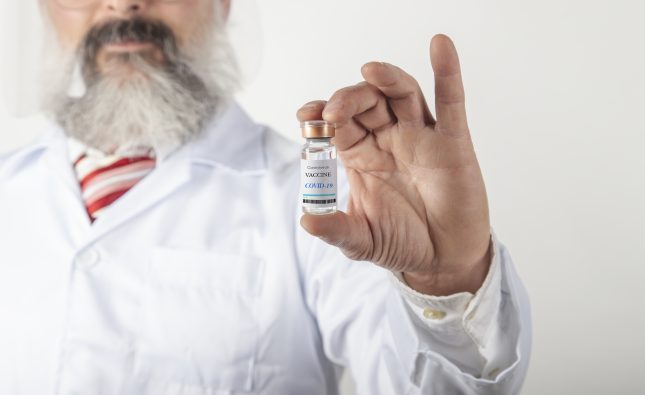
Why Men Feel Constantly Tired: The Overlooked Health Causes Beyond Burnout
Every man feels tired from time to time. But when tiredness becomes a permanent state — one that sleep doesn’t fix, weekends don’t resolve, and coffee barely touches — it’s time to ask a more serious question: why?
In andrology, male fatigue is more than a lifestyle issue. It’s often a signal of deeper physiological imbalances — from hormones to metabolism, sleep quality to cellular health. This article dives deep into the real, science-backed reasons why men feel constantly tired — even when everything “should” be fine.
Chronic Fatigue in Men: Not Just a Modern Epidemic
Let’s start with the obvious: yes, modern life is intense. Long work hours, digital overload, economic stress, and social pressures all take their toll. But there’s a line between being tired at the end of a hard week — and being persistently exhausted.
Signs of chronic fatigue in men often include:
- Waking up tired, even after 7–9 hours of sleep,
- Midday crashes that interfere with focus and productivity,
- Low drive — physically, mentally, and sexually,
- Emotional numbness or irritability,
- Loss of interest in social or physical activities.
These symptoms are often dismissed as “just stress,” but they can reflect biological imbalances that require real attention.
Hormonal Health: The Testosterone-Fatigue Connection
One of the most overlooked yet impactful causes of fatigue in men is low testosterone. As a cornerstone hormone for male energy, mood, libido, and cognitive sharpness, even moderate declines in testosterone can dramatically affect daily performance.
After age 30, testosterone levels naturally decline — about 1% per year. But due to lifestyle factors (stress, poor sleep, alcohol, excess weight), many men experience accelerated or early-onset low testosterone.
Symptoms include:
- Physical weakness or slow recovery after exercise,
- Brain fog and trouble concentrating,
- Loss of confidence or drive,
- Decreased libido or erectile difficulties,
- Mood swings or depressive episodes.
A simple blood test for total and free testosterone, DHEA, and SHBG can provide crucial insights. Low testosterone doesn’t always require TRT (testosterone replacement therapy) — sometimes lifestyle and targeted supplementation are enough to restore balance.
Nutritional Deficiencies: Energy Drains You Don’t See
Many men think they “eat pretty well,” but studies show that even so-called healthy diets often miss key micronutrients — especially for those under chronic stress or with digestive issues.
Deficiencies that commonly lead to fatigue include:
- Vitamin D3: vital for testosterone synthesis, immune strength, and mitochondrial energy production. Deficiency is linked to depression and muscle weakness.
- Vitamin B12: crucial for red blood cell formation and neurological function. Low levels cause fatigue, numbness, and mental slowness.
- Magnesium: supports over 300 enzymatic processes, including stress response and energy metabolism. Depletion is common in athletes and coffee drinkers.
- Iron (ferritin): especially for active men, iron helps oxygenate cells. Low ferritin (even with normal hemoglobin) can cause exhaustion.
Getting a nutrient panel done once or twice a year is a smart move — and addressing deficiencies is often the quickest path to feeling human again.
Silent Health Disruptors: What Labs Might Miss
Sometimes blood work comes back “normal” — but the fatigue persists. That’s when more subtle or functional causes may be at play.
1.
Sleep Apnea
Often underdiagnosed in men, especially fit or slim ones. Interrupted breathing during sleep leads to oxygen deprivation and disrupted REM cycles — resulting in “pseudo-sleep” that never restores the body.
2.
Insulin Resistance
Even without diabetes, poor blood sugar control can cause sharp drops in energy after meals, brain fog, and inflammation. It’s one of the earliest metabolic disruptions — and fully reversible.
3.
Thyroid Dysregulation
Subclinical hypothyroidism (where labs are “borderline”) can cause weight gain, fatigue, and cold sensitivity. Reverse T3 or antibody tests may be needed beyond standard TSH.
4.
Chronic Inflammation
Digestive issues, food intolerances, and environmental toxins can create low-grade inflammation that zaps energy on a cellular level — often without obvious symptoms.
5.
Mitochondrial Dysfunction
Think of mitochondria as your energy power plants. Chronic stress, poor diet, and oxidative stress can impair their function, leading to “energy bankruptcy.”
When Overcompensating Makes It Worse
Many high-achieving men respond to fatigue by pushing harder: more caffeine, more workouts, more supplements. But this “grind harder” mindset can backfire.
Overtraining, for example, increases cortisol and suppresses testosterone. Stimulants like caffeine and pre-workouts overstimulate the nervous system, eventually leading to burnout.
If your routine includes:
- 3+ cups of coffee daily,
- intense training but poor recovery,
- sleep aids or alcohol to “wind down”,
…you may be managing symptoms instead of solving the root problem.
Testing Smart: What to Check (And What Most Don’t)
A 15-minute visit and basic blood panel often aren’t enough. Consider asking for:
- Total and Free Testosterone
- DHEA-S
- Vitamin D3 (25(OH)D)
- B12, Folate
- Ferritin and Iron Panel
- Magnesium RBC
- TSH, Free T3, Free T4
- Fasting Insulin and HbA1c
- High-sensitivity CRP (inflammation marker)
Pair this with a sleep assessment, stress evaluation, and diet review, and you’ll start seeing the map of what your body is really saying.
From Surviving to Thriving: Energy Is a System
True male vitality isn’t about hacks or hacks of caffeine. It’s the result of physiological harmony: balanced hormones, nourished cells, restful sleep, and nervous system regulation.
To reclaim your energy:
- Start listening to fatigue instead of silencing it.
- Invest in proper testing — it saves time in the long run.
- Restore the fundamentals: eat well, move often, sleep deeply, think clearly.
- Partner with specialists in andrology or integrative men’s health.
Fatigue is not weakness. It’s biofeedback — a request from your body to rebalance. And for men who want to lead, build, provide, and perform — that’s a signal worth hearing.










